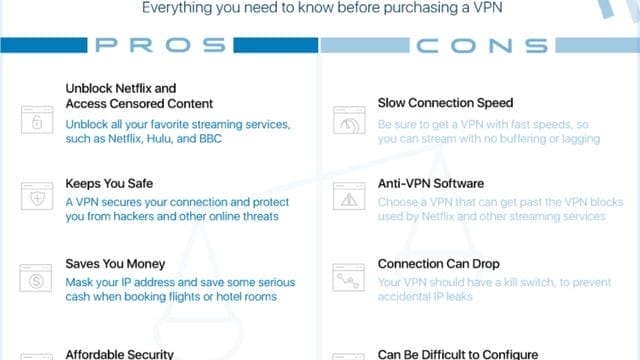In the field of information technology, there is a significant amount of financial transaction taking place, but not all available choices are made equal. Because most of us acknowledge that having a smartphone is an absolute requirement in the modern world, we don’t give a second thought to dishing out $100 or more every month for the newest model.
We make investments in blazing-fast connections, durable computers, premium earbuds, voice-controlled speakers, mirrorless cameras, backlit keyboards, virtual reality (VR) headsets, and a variety of other technological advancements. Investing in the best virtual private network (VPN) is nearly a no-brainer if you care about protecting your privacy, being anonymous, and maintaining your online security.
Those who are technologically affluent will always look for the alternative that is both the quickest and most functional one.
Even if you choose the most costly commercial VPN and add all of the bells and whistles, the pricing is often far more reasonable than it would be for those other products. This is because commercial VPNs have less overhead than other products. At this point in time, there are fewer drawbacks, and developments such as the WireGuard protocol have brought the feared loss of connection speed down to an almost insignificant level.
Because it encrypts all of your Internet-based data transfers, setting up a virtual private network, also known as a VPN, is an endeavour that is well worth your time.
Why is Using a VPN Necessary?
You should utilise a virtual private network for the following reasons:
A virtual private network, or VPN, offers protection when utilising public networks.
If you connect to public WiFi hotspots on a regular basis, you will not be able to determine who else is using the network at the same time as you. In addition to this, there is always the possibility that hostile hackers are spying on the traffic that is taking place on that WiFi network.
When you connect your device to an open WiFi network like this one, you put it at risk of a number of security flaws, including the so-called “man in the middle” attack. On the other hand, if you connect to the internet using a wireless network while simultaneously utilising a virtual private network (VPN), all of your data will be encrypted, and no one will be able to access it.
VPN Isolates You From Your Internet Service Provider.
When you access the Internet from within the safety of your own house, the likelihood of getting hacked is significantly decreased. However, keeping an eye on your internet service provider is the single most crucial thing to do when you’re at home. Internet service providers have access to a great quantity of information regarding their clients, including the tastes and behaviours of their customers when it comes to their use of the internet.
It’s possible that there are just one or two internet service providers (ISPs) that offer wired internet access in some towns and areas of the country. Installing a virtual private network (VPN) stops internet service providers (ISPs) from making a profit from the sale of your data to third parties and from utilising information about your internet activity to generate money. This is because ISPs earn from the sale of your data to third parties.
VPN Enables the Modification of Virtual Location
VPNs come in especially handy if you are currently living or travelling outside the nation in which you were born. When you use a virtual private network, even if you are outside the United States but are from the United States, you will be able to access web pages in the language that you use at home, even if you are outside the United States (VPN).
Alternately, you could carry out the instructions in the opposite order. You can acquire access to a foreign location and watch television programmes or movies that were created in another country even if you are physically located in the United States if you utilise a virtual private network, also known as a VPN.
In addition, a virtual private network (VPN) will reroute your internet traffic, keeping your identity secure even if you browse websites that are based in another country.
